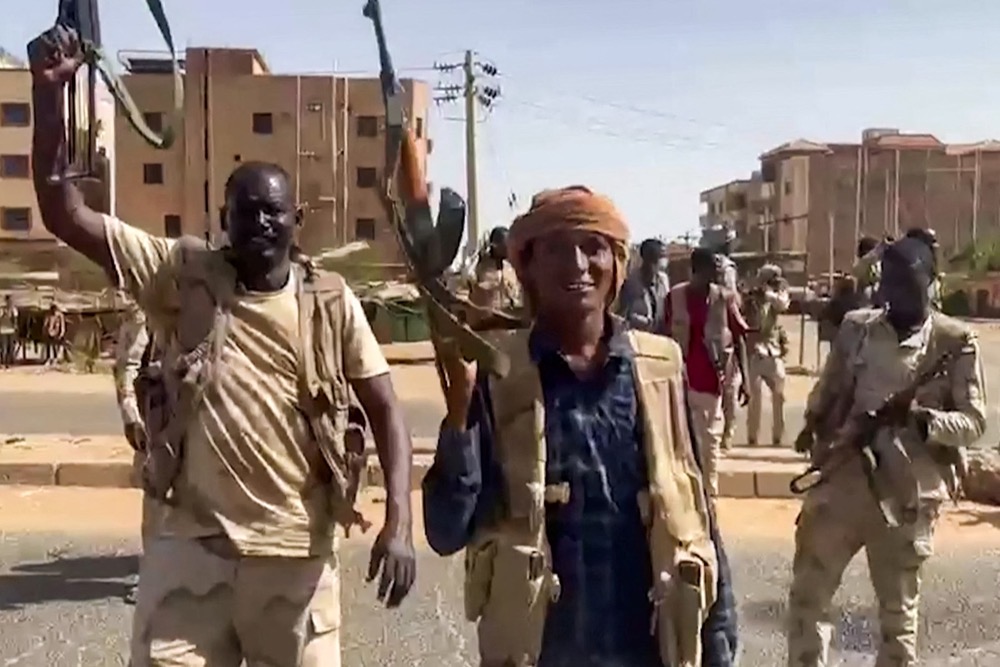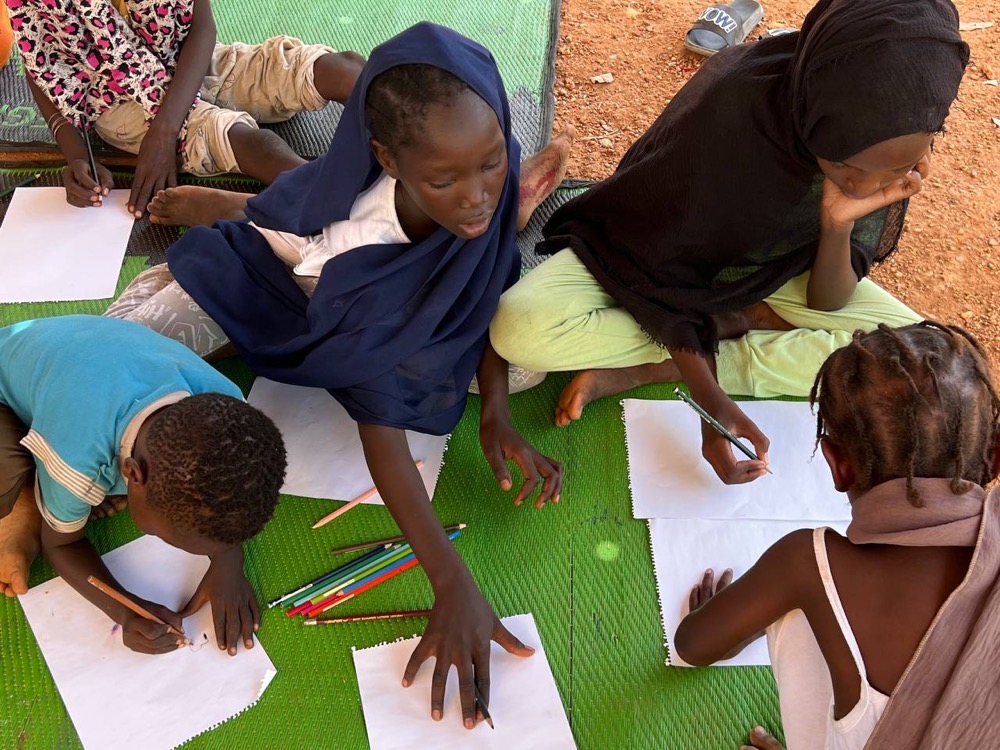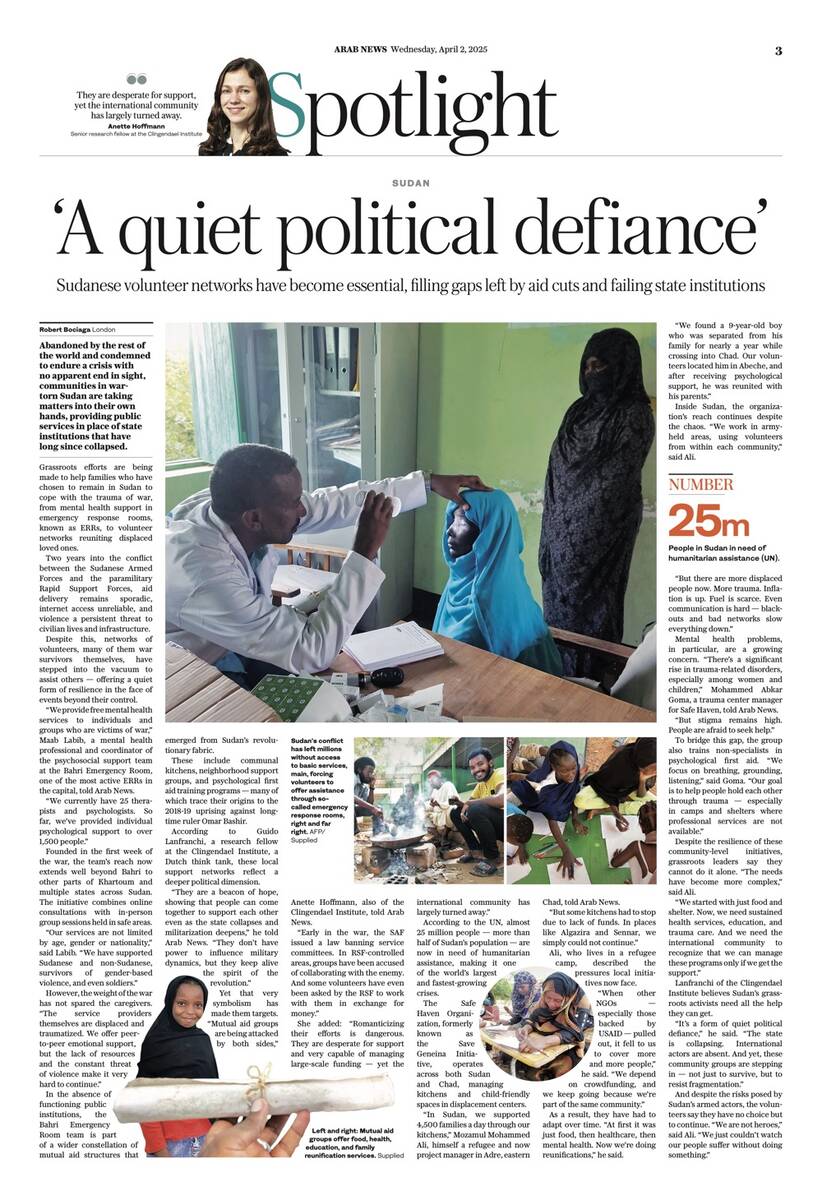BEIRUT: Hassan Bdeir, a key Hezbollah official from Nmairiyeh in southern Lebanon, was killed in an Israeli airstrike carried out without warning on Beirut’s southern suburbs at 3:30 a.m. on Tuesday.
The attack, which struck an upper floor of a nine-story building at the intersection of the Sfeir and Mouawad neighborhoods, also killed the target’s son, Ali Hassan Bdeir, and two others, one of them a woman.
Seven others were wounded, according to the Ministry of Health. The attack caused significant damage to surrounding buildings and dozens of parked cars were damaged by falling debris.
This is the second Israeli attack on Beirut’s southern suburbs in less than a week since the ceasefire agreement between Israel and Hezbollah took effect on Nov. 27, 2024.
Media outlets close to Hezbollah reported that the target was the “deputy head of the Palestinian affairs file within the party.”
According to sources, Hassan Bdeir, known as “Hajj Rabih,” was “a key figure in the party’s structure related to the Palestinian cause and its relations with various factions.”
Al Arabiya reported that Bdeir “had previously coordinated with former Hamas deputy leader Saleh Al-Arouri, who was assassinated by Israel in Beirut’s southern suburbs.”
An Israeli statement claimed that “under the direction of Shin Bet, the Israeli air force carried out a strike in Beirut’s southern suburb, targeting a Hezbollah operative who had recently directed Hamas operatives and assisted them in planning a major and imminent attack against Israeli civilians.”
Israeli army spokesperson Avichay Adraee alleged that “Bdeir was a member of Hezbollah’s Unit 3900 and the Quds Force and was planning an imminent attack on Israeli civilians. He was targeted immediately to eliminate this threat.”
No details of the alleged planned attack were provided.
Israel’s Channel 14 reported that “Israeli security services had received information that Bdeir was planning an operation against an Israeli aircraft in Cyprus.”
Residents of the affected street were in shock because the airstrike was the first launched without without prior warning.
During the recent war, Adraee had typically announced target locations with an evacuation warning at least half an hour in advance.
Haitham, a resident of a nearby building, said: “People were asleep when the explosion shook the area. We did not expect an airstrike on the second day of Eid Al-Fitr. Screams erupted among the people and children. We did not know what to do: flee or stay where we were? What is happening? How can we continue living in this area now that it has become a target again?”
A resident in his fifties, who preferred anonymity, expressed his outrage. “People’s lives and livelihoods have become worthless in the absence of any local or international protection against the enemy that exploits everything.” he said.
According to a security source, the strike with two guided missiles “targeted the top floor of the building where Hassan Bdeir and his family live …This led to the complete destruction of two apartments and damage to two additional floors.”
Reuters reported a US State Department spokesperson, who said: “Israel was defending itself from rocket attacks that came from Lebanon.”
The spokesperson said that “hostilities have resumed because terrorists launched rockets into Israel from Lebanon,” and that “Washington supports Israel’s response.”
Lebanese officials swiftly condemned the attack.
President Joseph Aoun said: “It is a serious warning of intentions lurking against Lebanon, especially given its timing, which came after the signing of an agreement in Jeddah to control the Lebanese-Syrian border, under the ... sponsorship of Saudi Arabia. It also came following our visit to Paris and the complete convergence of views we witnessed with President (Emmanuel) Macron.”
Aoun added: “Israel’s persistence in its aggression requires us to make more effort to address Lebanon’s friends in the world, and to rally them in support of our right to full sovereignty over our land and to prevent any violation from the outside or inside infiltrators, who provide an additional pretext for aggression. It also calls for greater internal unity.”
Parliament Speaker Nabih Berri said the airstrike was “a blatant act of aggression against Lebanon and an Israeli attempt to sabotage the ceasefire agreement and derail its implementation — an agreement to which Lebanon has remained firmly committed.”
He urged the countries sponsoring the ceasefire agreement to pressure Israel into “halting its aggression against Lebanon and ending its violations of Lebanese sovereignty, and to withdraw from its occupied territories.”
Prime Minister Nawaf Salam described the strike as “a blatant violation of Resolution 1701, which affirms Lebanon’s sovereignty and territorial integrity, and a direct breach of the arrangements for the cessation of hostilities.”
After visiting the site of the attack, Hezbollah MP Ibrahim Al-Moussawi held “the international community, the US, and the Western nations” responsible for the strike.
“Nothing justifies the killing of civilians. Even if Israel claims a Hezbollah member was present in a civilian residential area, such an attack is legally indefensible,” he added.
Al-Moussawi urged the Lebanese state to take action beyond issuing statements. “Those who place their faith in diplomacy must demonstrate their ability to assert influence on the international community,” he said.
“The resistance remains committed to the ceasefire agreement. We are not warmongers. Hezbollah will announce, at the appropriate time, whether it intends to change its stance.”




































